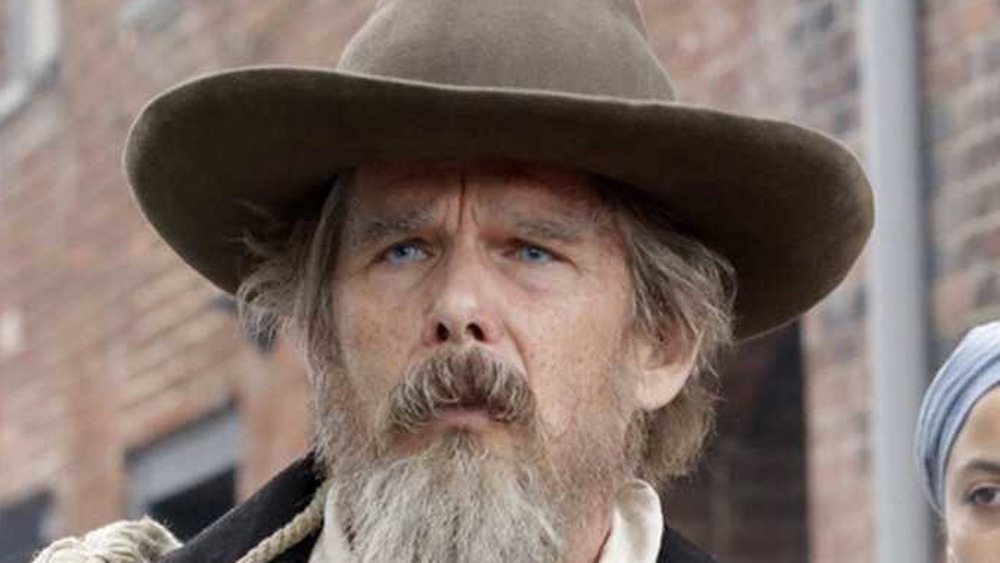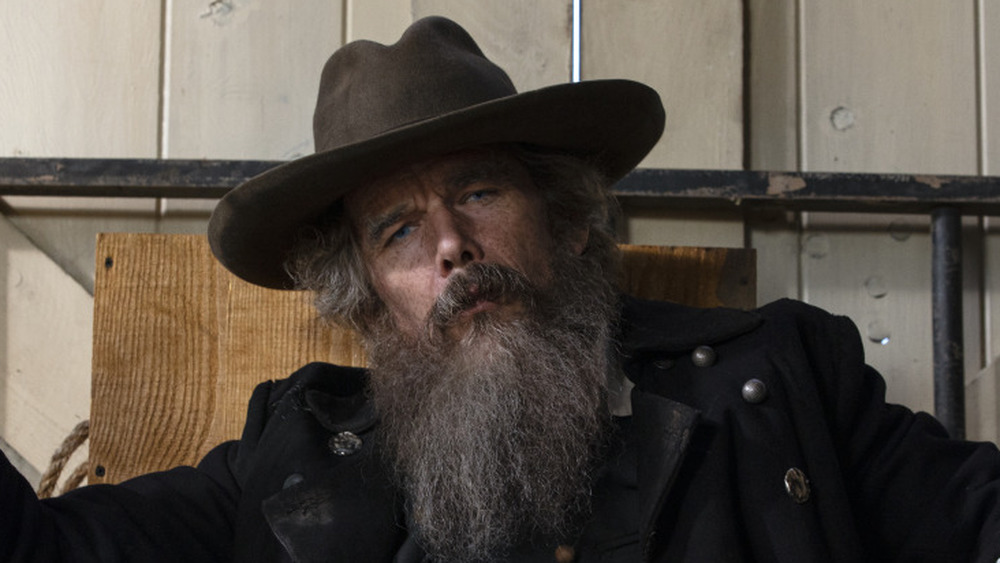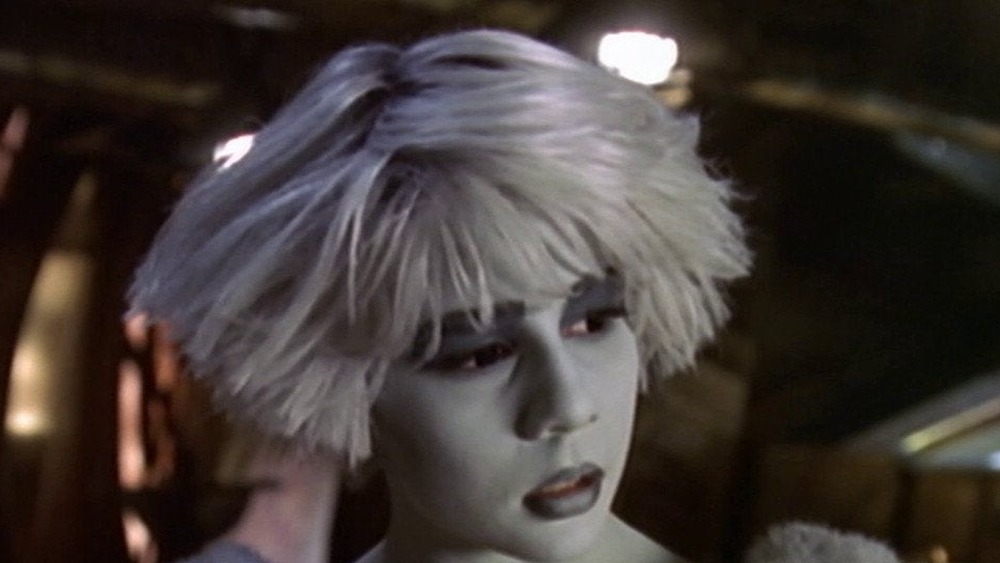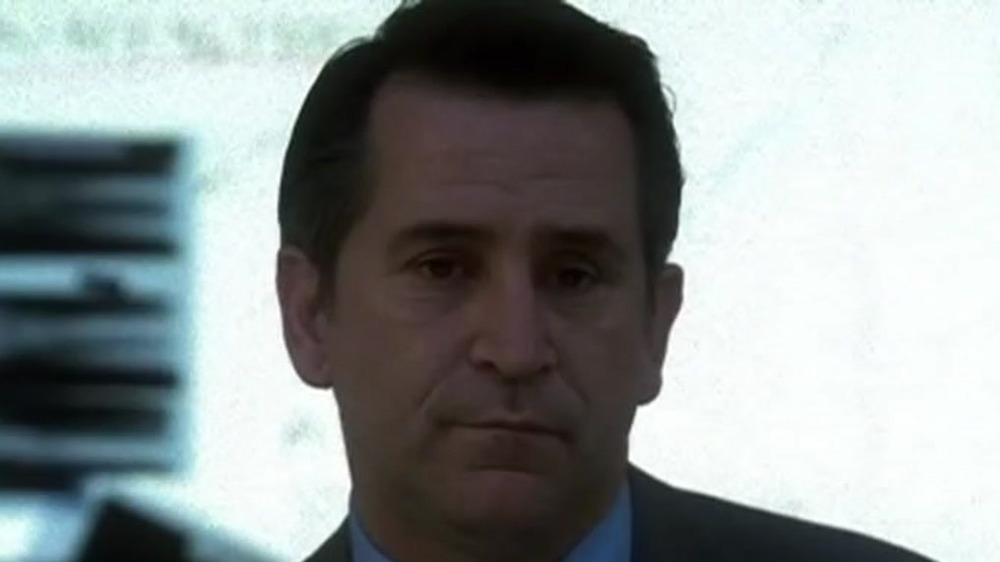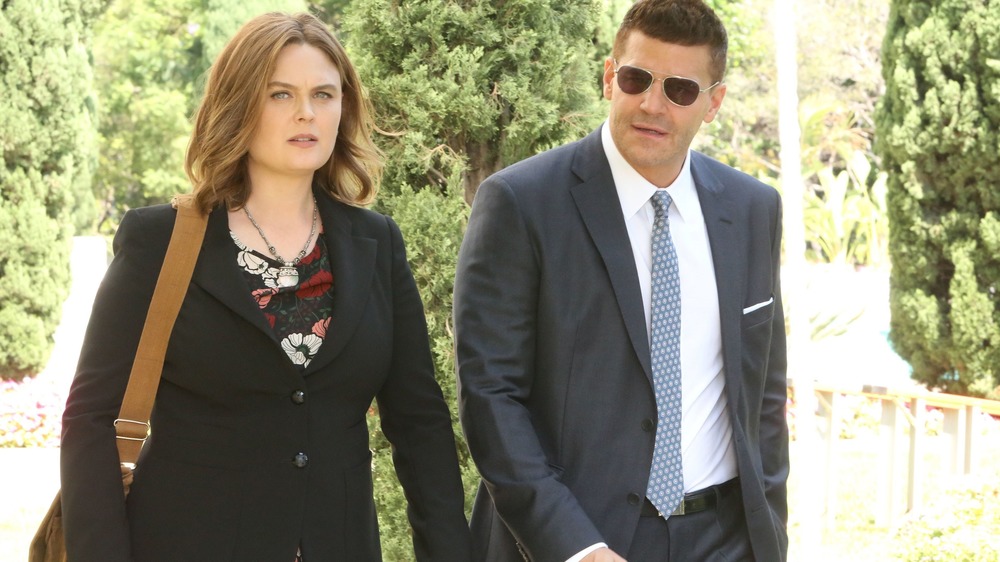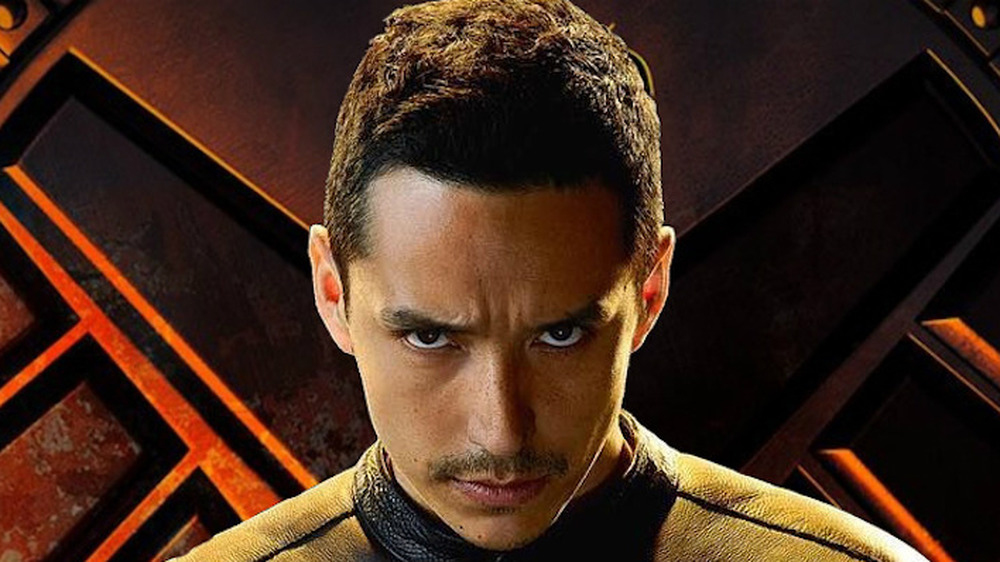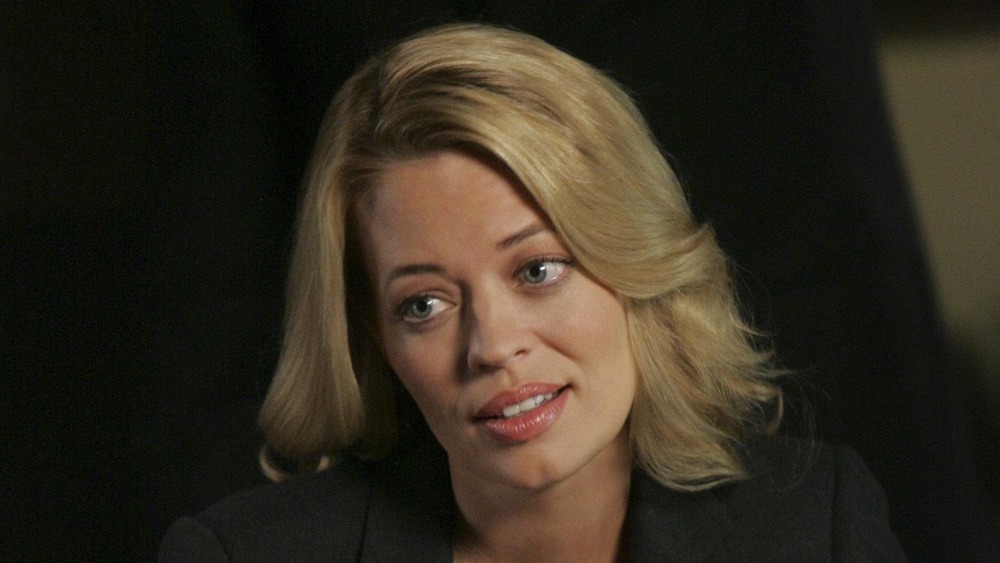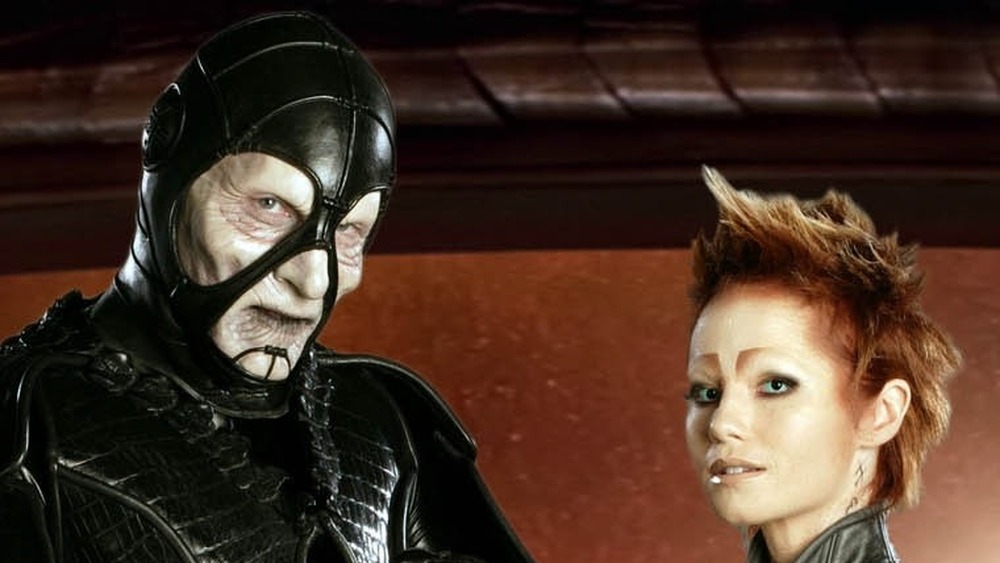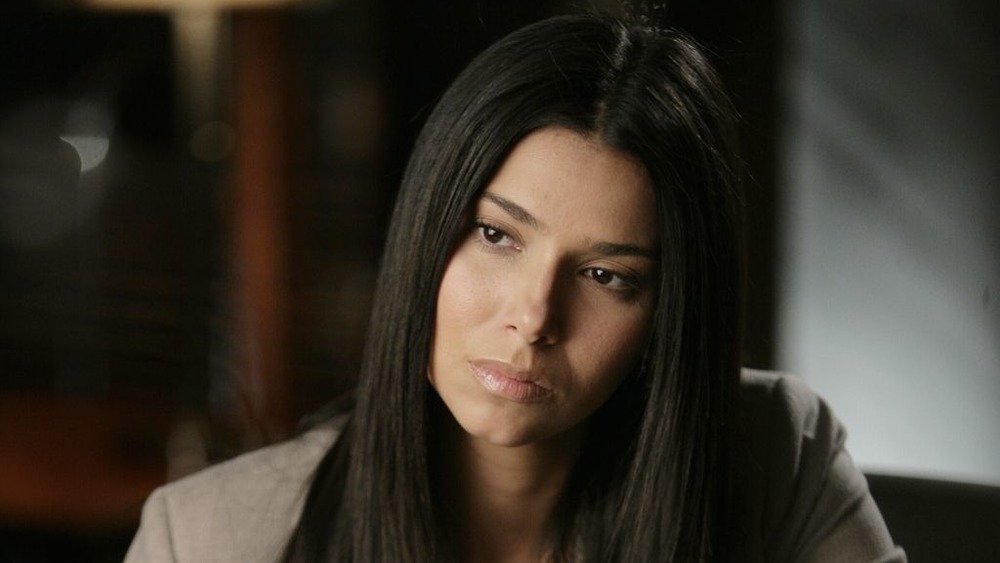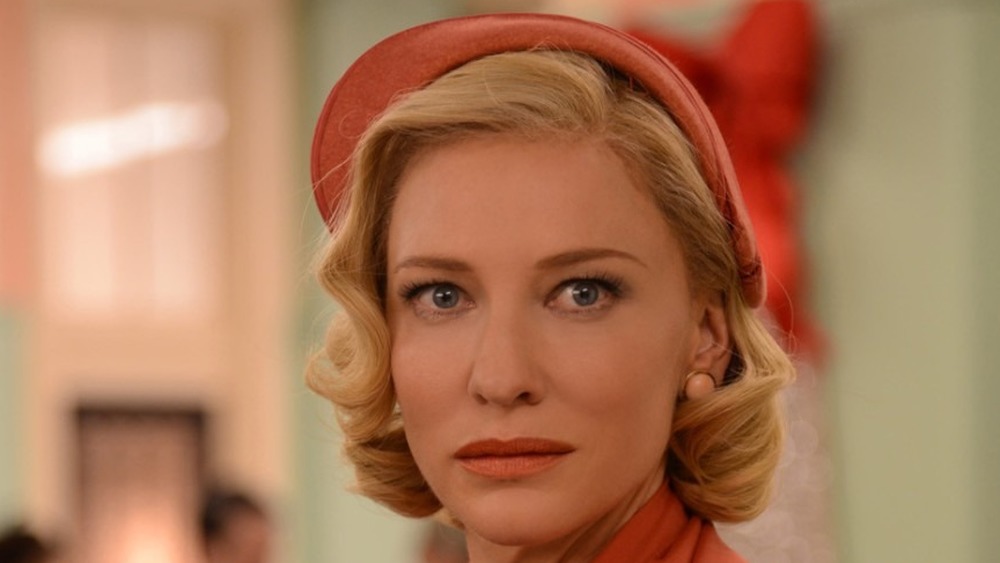Director Kate Woods On The Challenges Of American TV And The Best Actors She's Worked With - Exclusive Interview
Kate Woods is one of those directors who has worked on at least one episode of just about every television show you can think of: Castle, Bones, Agents of S.H.I.E.L.D., Farscape... the list goes on. Recently, she worked with actor and showrunner Ethan Hawke on his exploration of abolitionist John Brown's life, The Good Lord Bird.
Looper sat down with Woods to discuss the challenges of exploring Brown's life through a lens that tackles both the drama and the comedy of his very intense life. Along the way, we also wound up talking about a lot of the other shows she's worked on during her decades-long career.
As an Australian director, Woods not only discovered how different it is to work on shows in Australia as opposed to the United States of America, but she also had a chance to work with some of the most famous working actors today long before they came to the States themselves to build their careers.
What's it like directing constantly-working actors like David Boreanaz and Hugh Laurie? How tricky is it to work within the Marvel machine? Who are the best actors to work with as a director? Let's dig in.
Kate Woods on Ethan Hawke and Good Lord Bird
The Good Lord Bird is quite a show. You came in and did the penultimate episode. What was it like working Ethan Hawke, who was acting as producer, showrunner, and the lead actor in many ways? It seems like there were a lot of interesting challenges. There's a lot of natural light. There are a lot of outdoor shots. It seems like such an interesting project from a director's standpoint.
Apart from working with Ethan, which of course, is a huge draw and plus in any capacity, the big draw for me was the very special tone it has. It was almost Coen brothers in its kind of skewed humor, and considering the subject matter, it's actually hard to do that without being... It was a razor's edge as far as you can fall one way or the other very easily. So, I found that fascinating. I mean, Ethan was really driven and determined to get that humor right. Working with him is amazing, and all the different capacities that he had, his level of energy and his intelligence is amazing, but then you work with him like that in prep and then... you don't forget, but you're reminded again so viscerally when you get on the set with him what a star he is.
I think that the rare combination of a fine actor and a movie star are actually... You don't come across that, and certainly, you don't come across that many to work with, or certainly I don't. So I found that really wonderful, because he's just so beautiful to work with as an actor, and the style we were shooting was really challenging. But the DP had such a great grasp of it all. In this particular case, it is overcome by the fact that what you're doing is really special and you can see it there in front of you. I don't care how hard anything is if it's really, really good stuff, and this was.
The sense of humor does really jump out. That whole section of just being in there, how do you do that where you're keeping it dynamic even though you're stuck in this little barn area for large chunks of time?
Well, that of course is a really great challenge, and most directors go, "My God! What am I going to do?" And I would too. I mean, when I first started thinking about it, I was really going, "What am I going to do with this? How am I going to make it interesting?" But I found in the end that if you just lean into that, the fact that they are stuck, and certainly the style that we had, which had not very much movement in it, kind of lent itself to just playing on that. I was lucky that I had some really interesting pieces that were between the outside and the inside, and there was a lot of humor in the miscommunication and all that kind of stuff.
So you had a lot to play with in that regard. So instead of worrying about falsely putting something on top of it that would make it interesting or visually different, we kind of went the totally opposite way and just went, "We'll let it be what it is," and I found that it's a much better approach to it. The fact that there were so many people at any one time was always challenging too because you can't just show everybody at all times. You had to choreograph it so that the scene flowed from one person to another without you having to sort of cut around all the time, which would have been death for a thing like that.
Had you done any other sort of prep work for this to sort of prepare for this so you knew that you were kind of coming into, the story and everything else?
I came into it really quickly, so it was really studying the book, the scripts, and also I went down to Harpers Ferry where it all happened because it was not that far away, and just kind of really soaked myself in to who this man truly was, and you're right: he was a complete lunatic. I mean, how he ever came up with this idea was just unbelievable, but I think it's really sad that he's not remembered more.
Kate Woods on directing Farscape
I was going back and looking through all the different things you've worked on, and I wanted to go way back because if we're talking about insane people or insane fictional characters in this case, you did an episode of Farscape. You did "Twice Shy," which is a bananas episode with a CGI spider.
I love that CGI spider. The CGI stuff is fabulous of course, but those puppeteers were just... Pilot and Rygel and all the... they were sitting there all the time and they're alive in rehearsal and stuff. You can't just treat them like they're not there because the puppeteers are always... I can remember I'd just turn around, I put my hand on the top of Rygel's head to look, and he said "Get your hand off me, woman!" It was like in complete character. I was certainly put in my place, as I should have been. I had no right to do that, but it was really, really fun doing it and the actors were great. How they lived in those prosthetics — I really didn't know what half of those actors looked like because they stayed in them all day, and I still think Scorpius is one of the best alien bad guys ever created.
What was it like filming on those sets? You got a lot of interesting angles. Were there a lot of big built sets that you were able to sort of play around in?
What I did was all sets and they were really big. I think after a series has been going that long, you really kind of want to come in and try and see it from a kind of different perspective because you... And I've had this happen. When you do something for a long time, you've got to really be vigilant about not going back to the way you always do it. So to come in with fresh eyes that late was really fun. I hung around on the set a lot before just so I could kind of figure out what I was going to try and do. It was great. It was all in old warehouses. It wasn't even a soundstage. It was out in the Olympic games site of all places, in Australia, in Sydney.
Kate Woods on the formula of procedural television
You were in an almost mercenary, ronin way going from procedural to procedural, and you've done so many of them over the years. So what I was really curious is to kind of go down and look at some of the shows that you've done one or a couple episodes of, and get a sense of what was sort of exceptional and different about each of those sets that you worked on if you have memories of them.
The two procedural shows that I did most of were Bones and Castle, and I did a lot of NCIS: LA. NCIS: LA is its thing on its own because that's just action, and you end up... Because there's really big set pieces, you end up putting all your energy into that and then just let the bullpen flow a little bit and put all your energies into other things.
The very, very first show I did here was Without a Trace, and the producing director said to me, '"This show is going to be what it is with or without you. You have to jump on the train," and he said, "If you do, you'll get 25% of this show to call your own. Make sure you don't waste it," and it's always stuck with me so that every time I did go into another episode of a show that is... they are totally formulaic. I mean, that's why they grabbed their audience. There were characters. They were just about those characters that you tried to find something to do that was different, like play with a new toy because you've got plenty of toys on those shows. You could get whatever kind of cranes, special pieces of equipment. You could play with that, a guest cast, a story or something that was a little bit different.
But with Bones and Castle that I did most of, it was the humor. The balance was kind of hard and each story had a completely different way into it and a different kind of inspiration for it. So you'd sort of make sure that you knew all about that. You found creative ways to get into it and learn from it. I was never disappointed about doing those things or never got sick of it because you learn something new all the time. They were huge machines to maneuver through every week. You had a big job to do, and it just grew your muscles.
Kate Woods on David Boreanaz and Hugh Laurie
Working on a show like Bones must be interesting. It's interesting to watch an actor like David Boreanaz, who is never ever not working.
What he does do, I have to say, is he really knows how to turn it on and turn it off so that he grabs as much time as he can in and around the crazy schedule that he's got. He knows how to work a schedule to his advantage, and of course, being the star of every show that he's done, that's the first requirement as it was with Hugh [Laurie]. You have to get Hugh in and out as quickly as possible. Same with David, and it was easier with David because of course he wasn't the show. I mean, Hugh almost died the first couple of years on House, and then by the time I came around, they had this very specific amount of time for him so he could survive. And with David on Bones, it was easier because he was only in about half the show.
The really interesting thing about Dave is he's a really, really brilliant director. Really gifted director. Not that he ever really referred to it when you're working with him. He never was like that, but he knows the business so well, obviously, that he was sort of very easy to work with him in that way. Sometimes a little inflexible, but he did what he did and he did it so well, and he knew what he was talking about.
I imagine nearly everybody that's number one on the call sheet is going to be a little inflexible.
Oh, yeah. Some are more challenging than others, but I always thought they are there. I mean, those network shows, it's 22, 23 episodes a year. You've got to give them the respect for keeping that up and keeping it fresh, so I never mind. Whatever the first on the call sheet wants is fine, but they also wanted you to come in knowing what you were doing. You couldn't just stand back and go, "What do you want to do?" They weren't interested in that either. So they were really good to work... As you said, you don't want to be caught with your pants down, so you came in prepared and knowing what you wanted.
Kate Woods on Gabriel Luna and Agents of S.H.I.E.L.D.
You did a bit of Agents of S.H.I.E.L.D., didn't you?
Oh, yes! Of course. Yes, I love Agents. I love all that hero stuff. You always have to shoot them in a way, it's almost like you have to have the fan blowing with the hair in the wind. They're Marvel superheroes and you kind of go with that. I loved all that. The visual effects were fantastic. Once again, it was just a big learning curve to sort of balance all that stuff, and the sets were out of this world of course because they're all sort of castoffs from the movies, so you don't often get sets as detailed and as beautiful as those ones. And they were huge. It's just like having this fabulous big playpen, and the cast were divine as well.
How much does it trickle down that it's a part of that larger world, or is it something that you don't have to deal with particularly?
All of that sort of Marvel Universe stuff is really handed to you on a plate. It comes with the story, with the characters and the costumes, props, the sets, all those kind of things. So really, they encourage you to have fun with it. They loved it when it was funny, when you could see some humor in it, when the cast were a bit lighter, when there was really nice emotion between them. So for each director, the universe was a given and they protected it really carefully. There was always a Marvel representative there in every meeting and often on set.
You worked with Gabriel Luna, who was playing their version of the Ghost Rider. And then he went on to be a Terminator. What I found myself thinking about is that there's so much physicality to that stuff. I think there's a physical challenge, and watching Terminator: Dark Fate, I saw him do a lot of it, and I'm kind of curious — as a director, how do you work with actors when it's so action-y?
The challenge with Ghost Rider was his head was going to be a head of flames, a skull on fire, and he had so many restrictions on the clothes he had to wear and all that kind of stuff, and I think he really put most of his effort into the working out of how he should bodily be. The main action for that particular episode I did, it was a riot in a prison. It was really about everybody else, and it was just getting all the background to be convincing as rioting prisoners are not just a bunch of extras having fun, throwing toilet paper across the aisle at each other, and give it a sense of authenticity in which the Ghost Rider could walk right through and be believable.
Kate Woods on the evolving role of women as directors
There was a thing that I found that you had said at some point, and it made me wonder that when you'd started out directing in Australia — that there were five women directing, and you all knew each other.
Pretty much. I mean, we certainly knew who each other was. It was pretty tough, and I worked at the ABC, which is the equivalent of the BBC basically, and I was the only one there on staff, and I have to be honest and say that in the very, very early days, it wasn't so much that they didn't want to help you, they really did not want you to survive the kind of obstacles that were thrown in front of you as a female director. They were just shocked by it, I think. And also, I think the other thing was that I'd come up through the ranks, so I was in second assistant six months before and they go, "You used to bring me coffee, and now I'm supposed to listen to you telling me what to do." It changed, obviously, but I found that you blame yourself. You think "I'm doing something wrong," and it took me a long time to realize that they just couldn't make the switch, and I think maybe with me personally, it was because of the path that I took and the same people were not used to having me guide them through an episode. But it made you tough. You kept on going. There were times went I started to meet some really wonderful people and crew members and stuff, and it all sort of changed, but yes. With female directors there now, it's great, but yeah, it was pretty thin on the ground. Well, that was 30 years ago. Long time.
Are you still running into that stuff?
You do. Look. I mean, when I first got to America, I have to say it was pretty tough, particularly on the action-orientated shows. I did an episode of Shark that was huge, almost as big as the pilot, and I did an episode of Hawaii Five-0 that was as big as the pilot. It was basically Apocalypse Now in five days, and I found them very challenging mainly because of time, but also, it was around the time when there was a lot of push to make diversity happen, and diversity just meant women in those days. They felt like they had to do it, and they weren't really happy about it, so there was a real tension around it. Nowadays, I don't think that's there at all. I don't think there's a problem at all. Occasionally, there's a little kind of insidious kind of feeling. Nothing out in the open, but it's easy enough to ignore. I just hope that it opens up for everybody.
Kate Woods on visible queerness on Farscape vs other shows
Related to diversity: one thing that really stuck out to me in that Farscape episode is that there is an inherent queerness to almost every character, but especially Chiana (Gigi Edgley). Because they bring on that one-off alien who ends up being the CGI spider and there's a scene when the two women are flirting, and I thought, "Gosh. This was 2003." That's almost two decades ago now, and there were rules, and there still are I think to a degree about what you can and can't show. On Farscape, was there a sense of people being like, "You can shoot this, but this other thing cannot happen"? As a director, have you seen a sort of a shift over time in what you can and cannot do with the actors?
Oh, yeah. Totally. It would have been a sort of point where you couldn't go past, but I don't think we... I think they could have kissed. I don't think they did because I thought it was sexier not to, but that would have been about it, and I think it was an unspoken thing because it really wasn't what the scenes was sort of about. It was like pushing it really close, but not actually touching because I just thought it was more about teasing. However, I think one of the things that helped that, even though it's an American show, I think Australia was a little bit more [relaxed].
Kate Woods on the limitations of filming in America
How different is your experience dealing with what you can and can't film in the United States?
I was always surprised at quite how many restrictions there were here. I remember on Without a Trace, my very, very first episode of anything in America, they stopped production. We were running behind, but they stopped production because it was a girl who was boxing and she had a sort of gym outfit on. You could see her nipples, and they made us stop and put something on where you couldn't. I went "What?" So I kind of got used to that, and once I remember we had a prosthetic where the whole chest was flayed open, so you could see the rib. You could see the inside of somebody's body, but you couldn't close it and see their breasts. You could kill somebody. You can kill as many people as you want as long as they're clothed.
Kate Woods on the best actors she's ever worked with
Who are some of the best well-known actors you've worked with?
I worked with a young actress who actually got a job by accident, and she turned up because she replaced somebody on the day on a show, and they said, "Don't worry. She'll be fine. She's just come out of NIDA," which is our big drama school. She had to play somebody's mother. She turned up early because she never actually stood on a set before, so she could figure it all out, and she made sure that she knew that little kid as well as she possibly could so that kid felt really comfortable with her, and the lead actor that she was playing with was very famous in Australia, so she made sure she had him eating out of here within 20 seconds. You know who I'm talking about?
Who?
Cate Blanchett. I went "Who is this woman?" I worked with her again on another series a few years later, which was a show about Indigenous Australians. And the lead guy really wasn't an actor. He was more of a personality, and she made him act. She's just from another planet. She really is. And so smart.
And then the other person I worked with on one of their very first jobs, he played a prisoner who was faking a mental disability to try and get it easy, he was a young man called Hugh Jackman. It's 20/20 hindsight of course, but there was no doubt that there was something special about these two. Hugh was just starting to get big parts on stage and musicals, and when we were running behind or things got tight or whatever, he'd just been cast as Gaston in Beauty and the Beast, and he'd do little concerts to cheer us up. He's the most charming, delightful human being on the planet. I know everybody says it, but it just happens to be true. And that's where he met his wife. So I was kind of like, "No, this scene is not about you two falling in love, so just get over the other side of the room."
I was filming in the same studio complex when they were making The Greatest Showman, and I was working with another Aussie actor on Blindspot and he knew that I'd worked with Hugh and said, "You should go and say hello. You should go say hello." I said "No. That was 20 years ago. I'm not going to turn up, standing at the studio door." Anyway, I didn't know anything about it. On my last day of shooting there, we're working in a corridor above the studios, and all the crew were lined up down this corridor and down the corridor walks Mr. Jackman. "Hey, Woods! How long has it been?" That's the kind of man he is. He'd not seen me in, what, 25 years and he just... Obviously this Aussie actor said that I was here and he made the effort to come up and do it. I mean, I was gobsmacked. He's just incredible, but that's like I was saying right at the beginning about Ethan [Hawke], and I think Ethan was amazing because stars just have something. You can't describe it. When they have this quality, the camera loves them. You can see pretty much into their hearts and if you combine that with the kind of talent that those three have, they're mesmerizing, and to work with them, I consider myself extremely lucky.
